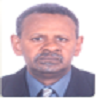Day 2 :
Keynote Forum
Abdeen M Omer
Ministry of Health and Social Welfare, Sudan
Keynote: Medicines distributions and financing alternatives
Time : 10:50-11:30

Biography:
Abstract:
- Globalization of Biosimilars | Clinical Development Of Biosimilars | Regulatory Approach for Biosimilars
Location: Sierra

Chair
Laszlo Endrenyi
University of Toronto, Canada
Session Introduction
Deven V Parmar
Cadila Healthcare Limited, India
Title: Evaluation of biosimilar Bevacizumab in the treatment of Indian patients with nonsmall- cell lung cancer
Time : 12:00-12:30
Biography:
Abstract:
Arthur G Cook
ZS Associates, USA
Title: The commercial landscape for biosimilars: Planning in an uncertain environment
Biography:
Abstract:
Over the next 10 years $71 billion in worldwide biopharmaceutical revenue may be affected by the launch of biosimilars products.Several biosimilars launches already have taken place in multiple European countries, and observations from uptake in these markets hold insight for strategic planners, both in Europe and other geographies. In countries such as the US the commercial landscape is complicated by additional uncertainties in regulatory and legal policy. In this talk we will examine the learning from prior launches and apply these insights in a decision analysis framework to aid in planning for future biosimilars introductions. In particular we will address the challenges of forecasting biosimilars uptake and innovator erosion.
Ravindra Patel
OmniBRx Biotechnologies, India
Title: An overexploitation approach for cell culture based modular bioprocessing
Biography:
Ravindra Patel is an Inventor, Founder and CEO of OmniBRx Biotechnologies Pvt. Ltd. He has invented the DBR technology (Patent Pending) for ADC range of single-use bioreactors, the first in-class SUB’s offering very efficient high density cell culture in small culture volume. He holds 10 years of enriched experience in the field of Bioprocessing and Biotechnology research. He is pursuing his PhD in Biotechnology from DYPU, Mumbai. He did his Master’s in Biotechnology from Sardar Patel University, Gujarat.
Abstract:
Md Abu Zafor Sadek
University of Dhaka, Bangladesh
Title: Global Status of Biosimilars & Prospects in Asia
Biography:
Abstract:
Anka G Ehrhardt
Bristol-Myers Squibb Co., USA
Title: Receptor occupancy in flow cytometry: A key PK/PD option in biologics clinical studies
Biography:
Abstract:
- Emerging Biosimilars in Therapeutics | Biosimilars Analytical Strategies | Regulatory Approach for Biosimilars
Location: Sierra

Chair
Mayra Liz Guzman-Kaslow
GK Regulatory Compliance & Engineering Consulting Corporation
Session Introduction
Asif Mahmood
Pfizer, USA
Title: Biosimilars: Challenges in safety and risk management
Time : 11:50-12:20
Biography:
Abstract:
Biography:
Abstract:
K Aftab
Isra University Karachi, Pakistan
